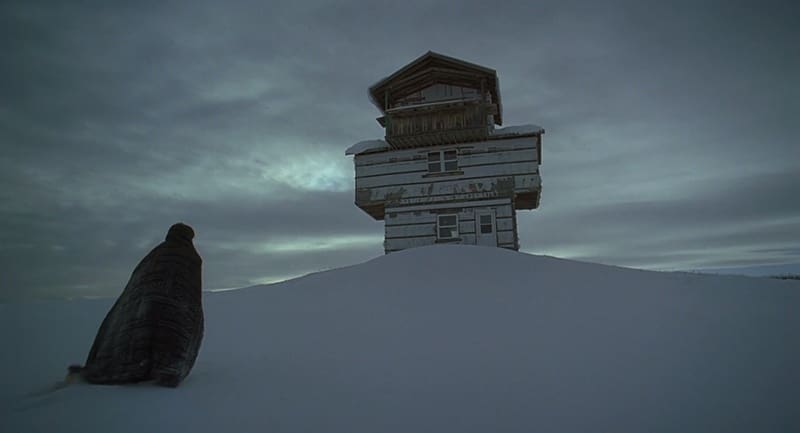The Lodge is a perfect example of learning to let go of expectations.
Having stayed away from reviews and reactions from Sundance, all I knew going into the screening at Fantastic Fest was that it was from the minds that brought us Goodnight Mommy, a movie that still haunts me to this day. It’s a brutal watch both physically and mentally. I expected that same hell from The Lodge.
Instead of co-directors Severin Fiala and Veronika Franz continuing with the exact same elements, The Lodge is more so cut from the same cloth that focuses all of its attention on psychological trauma. It’s not out to unsettle with the threat of violence, rather, the blurring of reality and faith with revenge and grief at the center of it all.
As the film opens with a hyper-realistic doll house that functions as a reflection of the story and telegraphs key plot points, it will be unfairly compared to Hereditary. The two are incredibly similar, but The Lodge’s script was floating around before Ari Aster’s breakthrough film. And comparatively, his film is for people that like happy endings.
The less that is known of this film’s storyline, the better.
Laura (Alicia Silverstone) is asked by Richard (Richard Armitage) to finalize their divorce so he can marry his former psych patient Grace (Riley Keough), a former cult member. In response, Laura commits suicide and sends her two kids Aidan (Jaeden Liberher from It) and Mia (Lia McHugh) into fits of depression and grief.
Happy times, right?
From there, it turns into an exploration of faith as Richard tries to console Mia who’s terrified her mom won’t go to heaven after killing herself. There’s nothing in the after life in his view. Conversely, the kids find out details of the mass cult suicide that Grace survived, and are then concerned about staying alone with her at the family lodge for Christmas.
And that’s the end of all that should be known. The rest is a series of unfortunate events that causes every character to question their own reality and what awaits them in the after life, confronting their beliefs and resurrecting hidden pasts.
Unfortunately, much of it feels too detached for its own good and can’t tie all its loose ends. But as far as replicating the depression of winter and constant fear of death and consequences, it gets full marks, as does Keough’s traumatic performance that is the true key to unlock the mystery behind everything. Without her process of playing a former cult member reconsidering everything she’s repressed and repented, the whole concept falls flat. She along with a stellar score from Danny Bensi and Saunder Jaurriaans, are there to guide us through a cold hell. If only everything around her was as clear during a first time viewing.
There’s just too much unnatural to completely nail the unnerving effect, like the family having Thanksgiving dinner outside and hanging up inflatable cooked turkeys for decorations. The dad is also a very successful therapist with more than one house but drives a Jeep from the 90s. And that’s the only car available. Too many moments like that put the rest up for discount. And the dollhouse has very little to do and doesn’t offer up a true reason to exist beyond being a bit creepy. Still, they’re minor enough details that just feel out of place. Thankfully, capturing the cold atmosphere and everyone’s reflective state of minds is wonderfully captured by Thimisos Bakatakis to neutralize any of the strange moments.
It’s the feel-bad Christmas movie you never knew you needed.
Overall Grade: 7.5 out of 10


